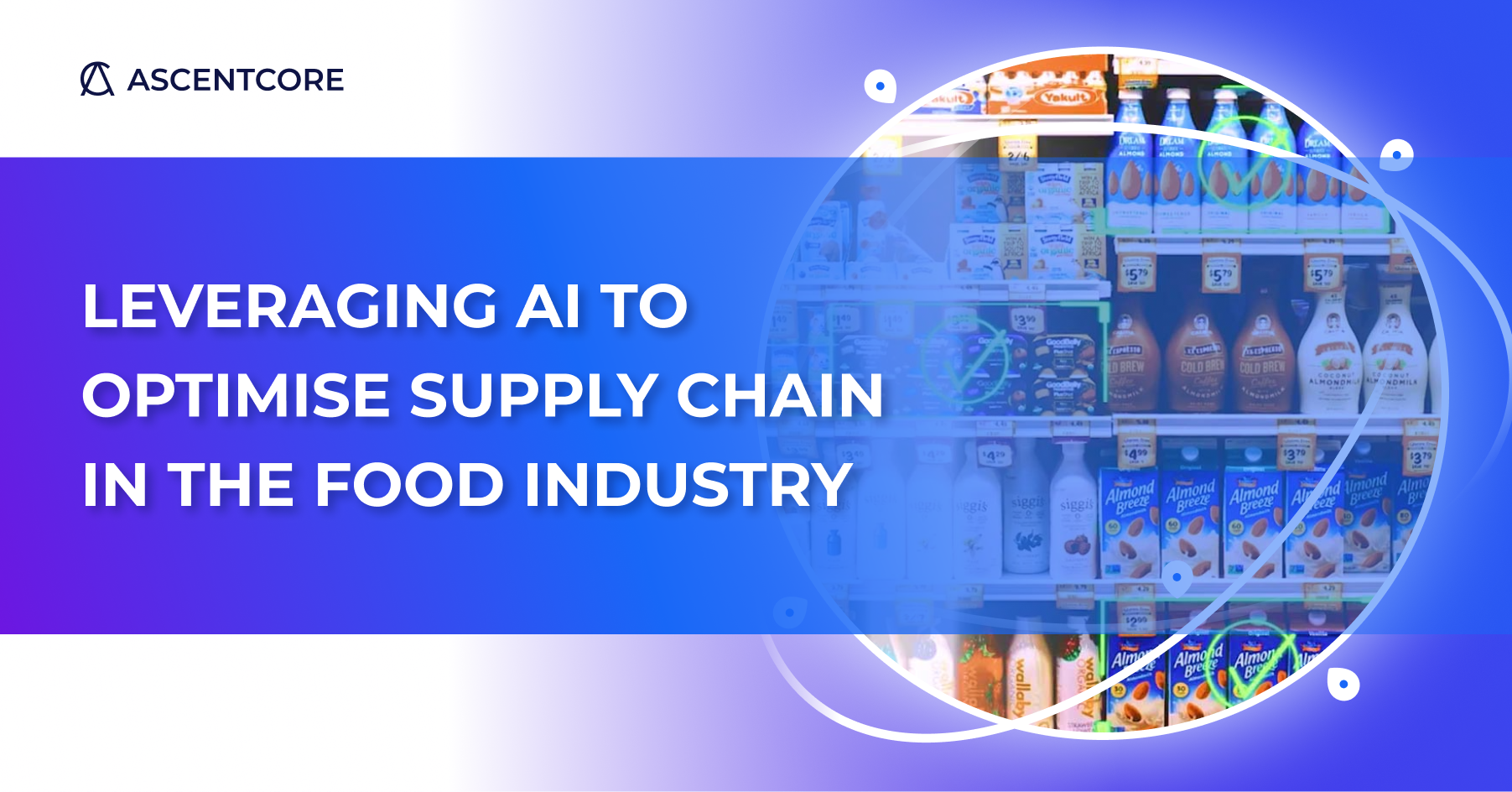In the fast-paced world of big supermarkets, where consumer demands shift rapidly and perishable goods dominate shelves, an optimized supply chain is the backbone of success. With thin margins, unpredictable demand, and the ever-present challenge of food waste, supermarkets face immense pressure to streamline operations while maintaining customer satisfaction.
Artificial Intelligence (AI) emerges as a game-changing technology, empowering supermarkets to enhance demand forecasting, inventory management, and supplier optimization. By leveraging AI-driven insights, supermarkets can reduce costs, minimize waste, and deliver fresher products to customers.
Demand Forecasting: Predicting Fluctuations with Precision
Demand forecasting truly sits at the heart of any effective supermarket supply chain. When retailers can accurately predict customer purchasing patterns and timing, they’re able to stock precisely what’s needed in appropriate quantities. The challenge lies in traditional forecasting approaches, which often fall short when confronting retail’s modern complexities. Weather shifts, community events, and constantly evolving sales trends all significantly impact customer demand in ways that can be difficult to anticipate.
This is where AI demonstrates its remarkable value. By processing enormous datasets drawn from diverse sources, everything from years of sales records to meteorological forecasts and social media conversations, AI systems detect subtle patterns and relationships that typically escape human observation. This capability allows supermarkets to predict demand changes with a precision that was previously unattainable.
For instance, AI can predict a surge in ice cream sales during an unexpected heatwave or anticipate increased demand for baking supplies ahead of a major holiday. This precision allows supermarkets to adjust their inventory proactively, ensuring they neither run out of popular items nor overstock products that may go to waste. Studies in the food service sector have shown that AI-driven forecasting can improve accuracy by up to 85%, making it an invaluable tool for big supermarkets aiming to stay ahead of customer needs.
Inventory Management: Cutting Waste and Stockouts with Real-Time Analytics
Inventory management is a delicate balancing act for supermarkets, especially when dealing with perishable goods. Stock too little, and you risk stockouts that frustrate customers; stock too much, and you face waste from expired products. AI addresses this challenge through real-time analytics, providing supermarkets with a dynamic view of their inventory levels and product lifecycles.
By continuously monitoring sales data, shelf life, and external factors like upcoming promotions or seasonal changes, AI can predict when items are likely to run out or expire. This allows supermarkets to optimize their stock levels in real time, reducing the risk of both shortages and overstocking.
Additionally, AI can automate reordering processes, ensuring that replenishments are timed perfectly to meet demand without excess. For example, a leading coffee retail chain used AI to reduce inventory levels by 15% while maintaining customer satisfaction—a testament to its potential in supermarkets, where perishable goods like fresh produce and dairy are staples. AI’s ability to minimize waste and ensure product availability is transformative for managing inventory at scale.
Supplier Optimization: Choosing Vendors with Data-Driven Insights
Beyond forecasting and inventory, AI plays a pivotal role in optimizing supplier relationships. Supermarkets depend on a network of vendors to supply everything from fresh produce to packaged goods, and selecting the right suppliers is critical for maintaining quality, cost-efficiency, and reliability. AI enables supermarkets to evaluate supplier performance using data-driven metrics such as delivery times, product quality, and cost-effectiveness.
By analyzing historical data and real-time performance indicators, AI can identify which suppliers consistently meet expectations and which may pose risks to the supply chain. This empowers supermarkets to make informed decisions about vendor selection, negotiate better terms, and diversify their supplier base to build resilience against disruptions. For example, AI can flag suppliers with frequent delays or quality issues, allowing supermarkets to address problems before they impact operations. In an era of frequent supply chain disruptions, this proactive, data-driven approach enhances efficiency and strengthens vendor relationships.
The Future of AI in Supply Chains
Looking ahead, AI’s potential in supply chains is vast. As technology evolves, AI could integrate with Internet of Things (IoT) devices for real-time tracking of inventory and supplier shipments, enhancing visibility and control.
Machine learning algorithms will continue to improve, refining forecasting accuracy and enabling supermarkets to anticipate trends with even greater precision. Additionally, AI’s role in sustainability will expand, helping supermarkets reduce food waste and optimize energy use, an increasingly important focus as the food industry faces pressure to address environmental concerns.
In conclusion, AI is far more than a passing technological trend, it’s a transformative force revolutionizing how major supermarkets manage their supply chains. From enhancing demand forecasting and inventory management to optimizing supplier relationships, AI empowers grocery chains to boost efficiency, reduce costs, and elevate the customer experience. As AI technology continues to evolve, its influence on the food industry will only grow stronger, making it a critical investment for supermarkets aiming to succeed in today’s complex, competitive market.
Ready to see AI in action? Visit our dedicated page, Smart Solutions for Grocery Chains, and discover how your store can harness the power of AI-driven innovation.



